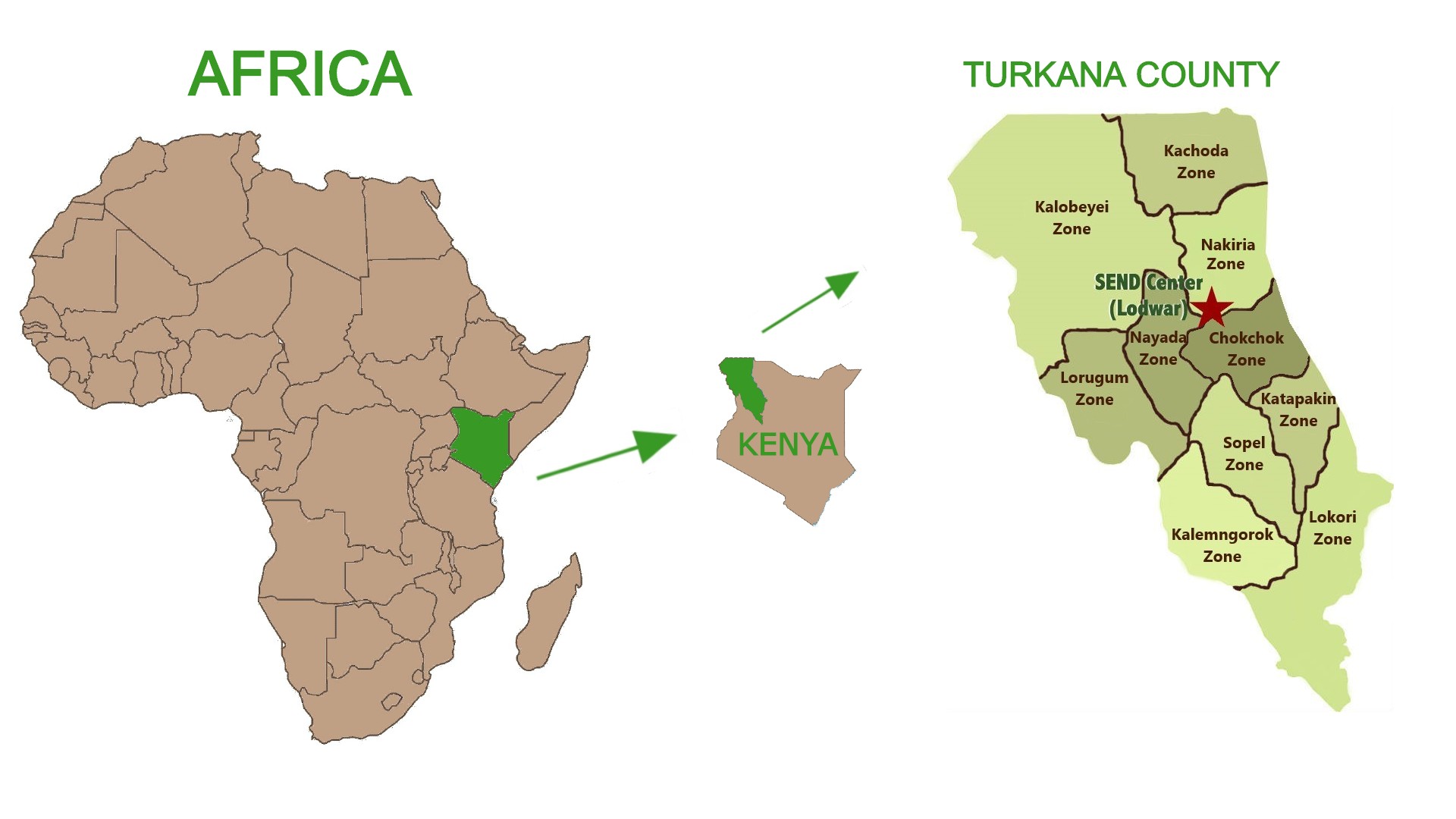The Turkana people live in the northwestern region of Kenya, Africa. They are the second largest pastoralist tribe in Kenya after the Maasai. They speak the Turkana language, which is Nilotic and similar to the Maasai language. The Turkana have maintained their undiluted traditional way of life. They are distinguished as being great survivors, living in harsh and inhospitable terrain.

